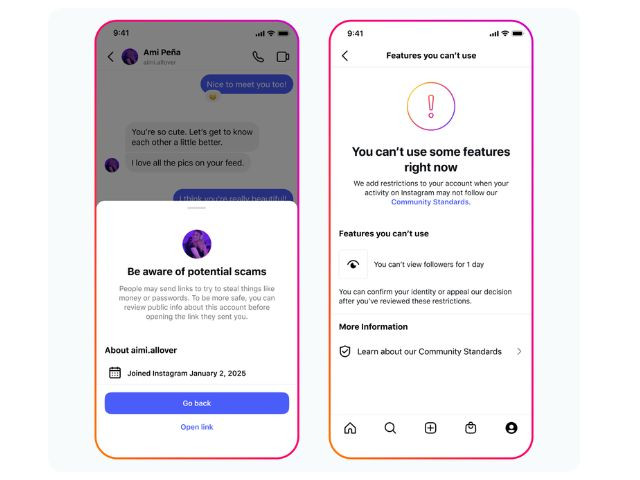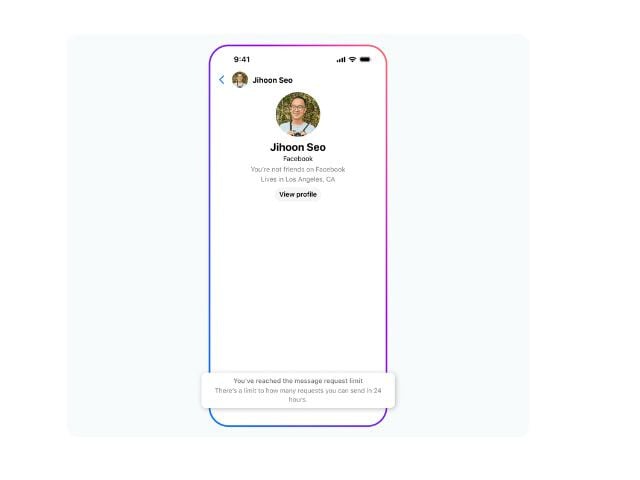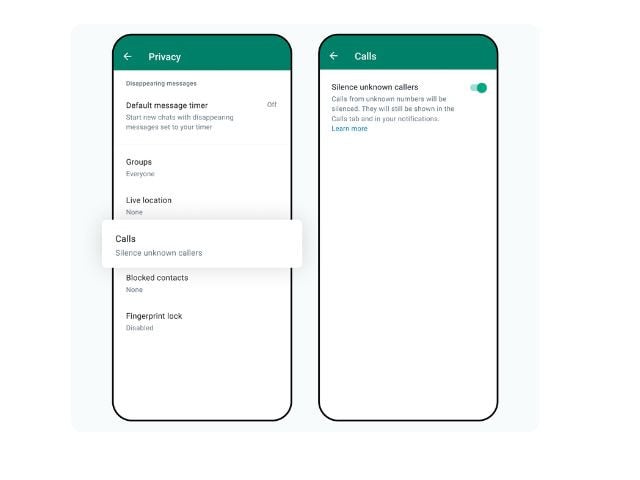Meta accelerates its efforts to protect users from online romantic scams as Valentine’s Day approaches, such as increasing the time of scams.
Millions of people to connect to dating apps, social media and news sites are rapidly exploiting the holidays.
Meta, holding Facebook, Instagram and WhatsApp, has announced a series of new tools and safety measures aimed at preventing users from being killed.
As part of its universal scam campaign, Meta has published a new research on romantic scams and highlighted its role in the fight against online fraud.
New tools to detect and prevent fraudulent
In an attempt to protect users, the meta has improved its diagnostic systems, which already eliminates millions of malicious accounts. The company has now developed additional security features on its sites, including Facebook Messenger, WhatsApp and Instagram.

Photo: Meta
In the Messenger, users will receive security notifications if they are involved in the account of suspicious activity, such as impersonation or communication from any other country. The tool is designed to help users be cautious and thought twice before interacting with harmful accounts.

Photo: Meta
WhatsApp has introduced the ability to enrich calls from unknown callers, preventing unnecessary contact with fraudsters. This update helps to save users from fraudsters who can try to deceive them with unsolicited messages or calls.

Photo: Meta
To fight impersonation frauds
One of the most common types of romantic fraud includes impersonation. Frauders often betrayed as soldiers or celebrities to gain confidence in their goals.
Meta has disrupted many major scams, where the fraudsters are playing American military members or famous people, and can reach victims using sites like Facebook, Instagram and Dictok.
These fraudsters usually start conversations claiming that they are lonely, looking for love, and then asking for money to compensate for the costs of travel or romantic gifts.
Meta’s groups have worked with open source researchers in Graffica, which identifies these fake accounts. They have also blocked the websites associated with these frauds and have removed well -known personalities or military personnel wearing masked profiles.
Handling fake matchmaking agencies
Another complex of fraud includes fake dating agencies. Frauders who pretend to be matchmaking companies are targeting individuals on platforms such as Facebook, Instagram, WhatsApp and Telegram.
These fraudsters promise users to meet wealthy or attractive people, often from overseas, and charges fees for accessing potential competitions. Meta has taken steps to disrupt these measures, especially in Africa, targeting fraudsters from Kenya, who is using individuals in Africa.
Cooperation and education
The anti -scam efforts of the Meta are beyond its sites. The company is working with law enforcement agents and industrial colleagues through technology against fraudulent coalition to share knowledge, discuss developing threats, and improve detection systems.
Educational content has been created to raise awareness of online scams with a security experts with Meta security experts. In Japan, for example, use tips with users have been shared with users to identify and report romantic fraud.
In addition to these effective measures, the Meta has allied with NGOs like ChildHelp in the United States to educate young people on online security. With these efforts, the Meta aims to reach users around the world and to equip them with the knowledge they need to avoid fraud.
Dedication of Meta for Security
As part of its vast efforts to fight online fraud, Meta has eliminated more than 400,000 fraud accounts in the past year, primarily from countries like Nigeria, Ghana and Cameron.
The company is also testing facial recognition technology to further fight impersonation fraud. If the profile image of a suspicious account matches the image of a general figure, the settings of the meta will be flagged and removed the account.
Meta’s work is not limited to Valentine’s Day. With the goal of protecting users from fraud, the company continues to monitor and respond to growing scam trends throughout the year. The efficient approach of the Meta is aimed at making its sites safe with increased user education and advanced safety equipment.
Because fraudsters continue to use holidays like Valentine’s Day, the meta urges users to be alert and question the unsuccessful messages and make any suspicious act to help keep the online community safe.













